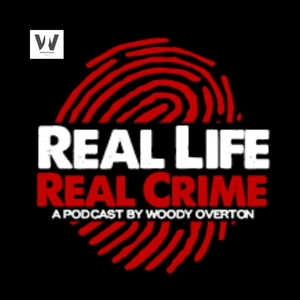
Monkeypox is here. What questions do you have?
08/03/22 • 46 min
Monkeypox is in Minnesota. There are 38 confirmed cases in the state as of Tuesday.
Earlier this month, the World Health Organization declared that monkeypox is a global public health emergency. And this week, California and Illinois joined New York state to call the virus a public health emergency.
The virus is spread through close contact, and can cause fever, headaches and a rash.
“People getting sick so far have mainly been men who have sex with men, though health officials note that the virus can infect anyone,” according to the Associated Press.
About 5,800 cases of monkeypox have been reported nationwide, including 1,400 in New York, 800 in California and 500 in Illinois.
MPR News host Angela Davis talks with two infectious disease doctors about monkeypox, how it’s spread, who is most at risk and how to prevent it.
Guests:
- Dr. Nick Lehnertz is the medical adviser for the Minnesota Department of Health infectious disease division.
- Dr. Rebecca Wurtz is an associate professor and infectious disease physician at the University of Minnesota School of Public Health.
Monkeypox is in Minnesota. There are 38 confirmed cases in the state as of Tuesday.
Earlier this month, the World Health Organization declared that monkeypox is a global public health emergency. And this week, California and Illinois joined New York state to call the virus a public health emergency.
The virus is spread through close contact, and can cause fever, headaches and a rash.
“People getting sick so far have mainly been men who have sex with men, though health officials note that the virus can infect anyone,” according to the Associated Press.
About 5,800 cases of monkeypox have been reported nationwide, including 1,400 in New York, 800 in California and 500 in Illinois.
MPR News host Angela Davis talks with two infectious disease doctors about monkeypox, how it’s spread, who is most at risk and how to prevent it.
Guests:
- Dr. Nick Lehnertz is the medical adviser for the Minnesota Department of Health infectious disease division.
- Dr. Rebecca Wurtz is an associate professor and infectious disease physician at the University of Minnesota School of Public Health.
Previous Episode

Bicycling and bike routes surging ahead in Minnesota
Bicycling is growing in more ways than one in Minnesota. During the COVID-19 pandemic bike sales shot up and more people started biking recreationally.
City and regional planners are also encouraging bicycling with the expansion of protected bike lanes and trail networks that let you get from point A to point B without riding on the road. But, today’s cyclists are a diverse pack, including fast racers, slow beginners, kids, commuters and electric bike riders. How can everyone share the paths?
MPR News host Angela Davis spoke with two avid bicyclists about how to get into bicycling and tips on using trails and bike lanes.
Guests:
- DeWayne Combs is a physical education teacher at Murray Middle School in St. Paul. He’s worked for St. Paul Public Schools for 31 years and was a finalist for Minnesota Teacher of the Year in 2020 for his work introducing hundreds of students to bicycling. He’s also raced mountain bikes and commutes from Stillwater to St. Paul by bike.
- Elissa Schufman is director of strategic partnerships at Move Minnesota, a St. Paul-based advocacy group that promotes transit, biking, and walking. She also chairs the Minneapolis Bicycle Advisory Board and commutes to work by bike.
Subscribe to the MPR News with Angela Davis podcast on: Apple Podcasts, Google Podcasts, Spotify or RSS.
Next Episode

Historian Carol Anderson on the assault to undermine voting rights
Fifty-seven years ago this week, on Aug. 6, 1965, President Lyndon Johnson signed the landmark Voting Rights Act, with Martin Luther King and other civil rights leaders looking on. It was a turning point in American history. At the time, Pres. Johnson called it “a victory of freedom for the nation.”
Thursday morning, in a special edition of Big Books and Bold Ideas, host Kerri Miller examined whether the commitment of that milestone legislation still holds all these years later, particularly as the Supreme Court takes on one case that could upend state election laws and another that challenges a key section of the Voting Rights Act. Her guide was Professor Carol Anderson, one of the nation’s foremost scholars on equity and voting and the author of “One Person, No Vote.”
Guest:
- Carol Anderson is a professor of African-American studies at Emory University and an accomplished author.
To listen to the full conversation you can use the audio player above.
Subscribe to the MPR News with Kerri Miller podcast on Apple Podcasts, Google Podcasts or RSS.
Subscribe to the MPR News with Angela Davis podcast on: Apple Podcasts, Google Podcasts, Spotify or RSS.
Subscribe to the Thread newsletter for the latest book and author news and must-read recommendations.
If you like this episode you’ll love
Episode Comments
Generate a badge
Get a badge for your website that links back to this episode
<a href="https://goodpods.com/podcasts/mpr-news-with-angela-davis-33374/monkeypox-is-here-what-questions-do-you-have-22416643"> <img src="https://storage.googleapis.com/goodpods-images-bucket/badges/generic-badge-1.svg" alt="listen to monkeypox is here. what questions do you have? on goodpods" style="width: 225px" /> </a>
Copy




